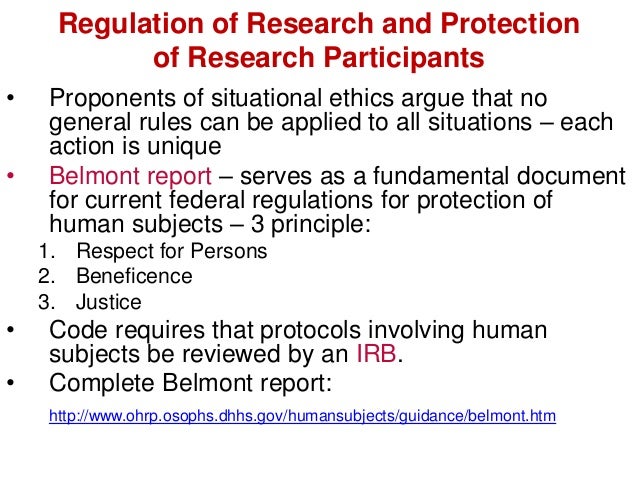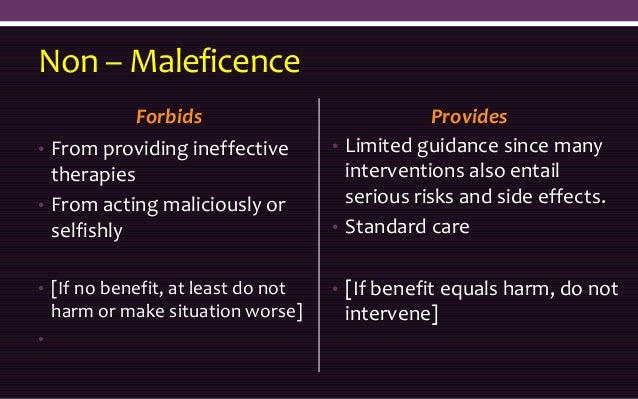

- THE BELMONT PRINCIPLE OF BENEFICENCE REQUIRES THAT FULL
- THE BELMONT PRINCIPLE OF BENEFICENCE REQUIRES THAT FREE
Although the IRB is free to make suggestions on methodology and hypotheses, the decision of whether or not to approve a given study is made solely on the basis of ethics and not the quality of the proposed investigation.
THE BELMONT PRINCIPLE OF BENEFICENCE REQUIRES THAT FULL
An expedited review may result in approval, conditional approval with necessary changes indicated, or referral to the full board for review. Research studies that involve minimal risk to subjects may be reviewed using an expedited process in these cases, proposals will be reviewed by one or more members of the IRB. Before submitting an application, please read the instructions carefully and apply them as indicated by the IRB Review: Where Do I Begin? Applications requiring full board review will be evaluated by all members of the IRB for their approval, denial, or conditional approval with necessary changes, as indicated by the committee. The process for approval by the IRB begins when a researcher submits an application to the committee, using the appropriate forms ( all forms can be found here). The guidelines specified by these organizations mandate the need for Informed Consent, Confidentiality, Debriefing, Limited Deception and Protection from harm. These core principles have been translated into specific guidelines by several organizations, including the Office for Human Research Protections (OHRP) at the Department of Health and Human Services, the American Psychological Association, and the American Sociological Association. The principle of Justice requires that we treat subjects fairly. The principle of Beneficence requires us to protect individuals by maximizing anticipated benefits and minimizing possible harms.

This principle requires that subjects give informed consent to participation in research. The principle of Respect for Persons acknowledges the dignity and autonomy of individuals.

The Randolph-Macon guidelines for research with human subjects are based on the three principles outlined in the 1979 Belmont Report: Respect for Persons, Beneficence and Justice. The focus of the evaluation is on the ethical treatment of the individuals participating in the research process. The Belmont Report, in its entirety, can be found here.The Randolph-Macon Institutional Review Board (IRB) evaluates all research projects involving the use of human participants at Randolph-Macon. economically disadvantaged or those with limited cognitive ability) or those who are easily manipulated as a result of their situation. It forbids the exploitation of vulnerable people (e.g. This third principle raises questions about who ought to receive the benefits of the research and who ought to bear its burdens or the fairness of distribution. The third basic ethical principle is that of justice. While the obligation to “do no harm” is often the focus of discussions, the obligation to maximize possible benefits, while minimizing possible harms, is an obligation that warrants equal consideration. The Belmont Report identifies two general and complementary rules regarding beneficence: 1) do no harm, and 2) maximize possible benefits and minimize possible harms. Beneficence is the recognition that people are treated in an ethical manner not only by respecting their decisions and protecting them from harm, but also by making efforts, or, more specifically, making an obligation to secure their well-being. The amount of protection provided to an individual should depend on the risk of harm and the likelihood of benefit offered by the research.īeneficence is the second ethical principle. The second is the recognition that due to various reasons, not all people are capable of self-determination and instead require protection. The first is the recognition that people are autonomous and entitled to their own choices and opinions, unless detrimental to others. This first principle is made up of two important, but distinct, requirements. The first principle is respect for persons. There are three basic principles set forth in the Belmont Report. The Commission was created as a result of the National Research Act of 1974 and charged with identifying the basic ethical principles that should underlie the conduct of biomedical and behavioral research involving human subjects and developing guidelines to assure that such research is conducted in accordance with those principles. The Belmont Report was written by the National Commission for the Protection of Human Subjects of Biomedical and Behavioral Research.


 0 kommentar(er)
0 kommentar(er)
